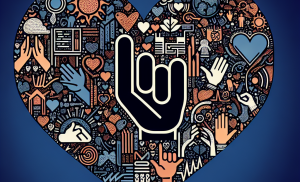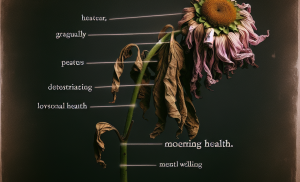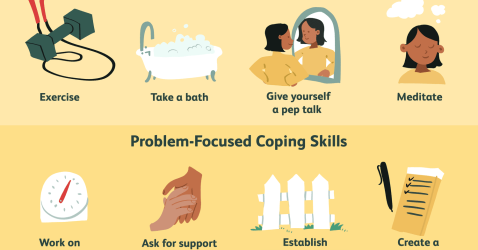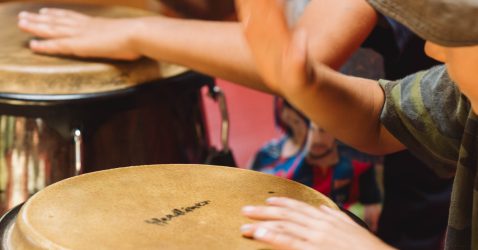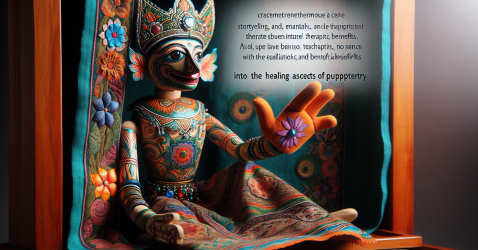Neurodiversity In The LGBTQ+ Community: Embracing Differences
In the world of diversity and inclusivity, the intersecting experiences of individuals in the LGBTQ+ community and those with neurodivergent traits are finally being recognized. The article “Neurodiversity In The LGBTQ+ Community: Embracing Differences” explores the unique challenges and triumphs faced by individuals who belong to both communities. By shedding light on the importance of embracing differences and promoting understanding, this article aims to foster a more inclusive and supportive society for all.
Understanding Neurodiversity
Neurodiversity refers to the natural variation in the human brain and encompasses a range of neurological conditions, including autism, ADHD, dyslexia, and more. Rather than viewing these conditions as disorders that need to be fixed or cured, the concept of neurodiversity embraces them as unique and valuable parts of human diversity.
Definition of neurodiversity
Neurodiversity is a term that was coined by Judy Singer in the late 1990s, and it has gained traction in both scientific and social contexts. It challenges the notion of normalcy, highlighting the idea that there is no single “normal” or “typical” brain. Instead, neurodiversity recognizes the value and importance of different neurological profiles and the contributions they bring to society.
Different types of neurodivergence
Neurodivergence encompasses a wide range of conditions and characteristics. Some commonly recognized categories of neurodivergence include autism spectrum disorder (ASD), attention deficit hyperactivity disorder (ADHD), dyslexia, dyspraxia, Tourette syndrome, and more. Each of these conditions presents unique strengths, challenges, and ways of experiencing the world. It is important to note that neurodivergence is not limited to these specific conditions and can also include other less well-known or understood neurological variations.
Intersectionality of LGBTQ+ and Neurodivergent Identities
Understanding the intersectionality between LGBTQ+ and neurodivergent identities is crucial for creating inclusive and supportive communities.
The LGBTQ+ community
The LGBTQ+ community encompasses individuals who identify as lesbian, gay, bisexual, transgender, queer, or other diverse sexual orientations and gender identities. This community has faced historical marginalization and discrimination, and has worked diligently to challenge societal norms and gain equal rights and visibility.
The neurodivergent community
The neurodivergent community includes individuals who have various neurological conditions that differ from the societal norms. Just like the LGBTQ+ community, neurodivergent individuals face unique challenges and opportunities that are often misunderstood or stigmatized by society.
Overlapping experiences
There is a significant overlap in the experiences of individuals who identify as both LGBTQ+ and neurodivergent. Many individuals within these communities face discrimination, prejudice, and limited access to resources and support. Intersectionality can amplify these challenges, making it essential to understand and address the specific needs and experiences of neurodivergent individuals within the LGBTQ+ community.
Prevalence of Neurodivergent Identities in the LGBTQ+ Community
Research suggests that neurodivergent identities are more prevalent within the LGBTQ+ community compared to the general population. Various factors contribute to this higher prevalence.
Statistics and research findings
While research on the intersection of neurodivergence and LGBTQ+ identities is still limited, several studies have indicated a higher likelihood of neurodivergence among LGBTQ+ individuals. For example, one study conducted in the United Kingdom found that LGBTQ+ youth were more likely to have higher rates of autism spectrum conditions compared to their heterosexual and cisgender peers.
Factors contributing to prevalence
Several factors contribute to the higher prevalence of neurodivergence within the LGBTQ+ community. The stress of dealing with societal discrimination, coming out, and navigating identity can impact mental health and increase the likelihood of neurodivergent traits becoming more evident. Additionally, the experience of being part of a marginalized community can create a sense of safety and acceptance within the diverse community of neurodivergent individuals.
Challenges Faced by Neurodivergent Individuals in the LGBTQ+ Community
Neurodivergent individuals within the LGBTQ+ community face unique challenges that require specific attention and support.
Communication and social interactions
Neurodivergent individuals may face difficulties with communication and social interactions, which can be particularly challenging within the LGBTQ+ community. The community relies heavily on interpersonal connections, and social norms and expectations may be difficult for neurodivergent individuals to navigate. This can lead to feelings of isolation, exclusion, and misunderstanding.
Mental health concerns
Both neurodivergent individuals and LGBTQ+ individuals are more likely to experience mental health concerns. The combination of these identities can exacerbate these challenges. Stigma, discrimination, and lack of access to appropriate mental health care can all contribute to poorer mental health outcomes.
Access to support and resources
Accessing appropriate support and resources is crucial for the well-being and success of neurodivergent individuals within the LGBTQ+ community. However, these individuals may face additional barriers in accessing inclusive and affirming support due to a lack of understanding and awareness of their specific needs.
Embracing Neurodiversity within the LGBTQ+ Community
Embracing neurodiversity within the LGBTQ+ community involves promoting inclusivity, acceptance, and understanding of diverse neurological profiles.
Promoting inclusivity and acceptance
Creating a culture of inclusivity and acceptance within the LGBTQ+ community means recognizing and valuing neurodivergent individuals as full and equal members. This involves actively challenging stereotypes, promoting empathy, and fostering understanding of the diverse experiences of neurodivergent individuals.
Educational initiatives
Education is key to fostering greater understanding and acceptance of neurodiversity within the LGBTQ+ community. Providing educational initiatives that raise awareness about different neurological conditions and their experiences can help reduce stigma, promote empathy, and encourage meaningful inclusion.
Creating safe spaces
Creating safe spaces that are accessible and understanding for neurodivergent individuals within the LGBTQ+ community is crucial. This can involve implementing sensory-friendly practices, providing clear communication guidelines, and offering diverse support options. By ensuring that everyone feels safe and welcome, the LGBTQ+ community can celebrate and benefit from the strengths and unique perspectives of neurodivergent individuals.
Promoting Mental Well-being in Neurodivergent LGBTQ+ Individuals
Addressing mental health stigma and providing tailored support and therapies are essential for promoting the mental well-being of neurodivergent individuals within the LGBTQ+ community.
Addressing mental health stigma
Combating mental health stigma within the LGBTQ+ community involves recognizing the unique challenges faced by neurodivergent individuals and working towards reducing discrimination and promoting understanding. It is crucial to create an environment in which individuals feel comfortable seeking help, addressing their mental health concerns, and accessing appropriate support.
Tailored support and therapies
Providing tailored support and therapies that recognize the intersectionality of LGBTQ+ and neurodivergent identities is crucial. This may involve addressing specific cultural and social needs, providing accessible and inclusive mental health care, and supporting individuals in developing coping strategies that work best for their unique situations.
Building stronger support networks
Promoting stronger support networks for neurodivergent individuals within the LGBTQ+ community is vital for enhancing their mental well-being. Peer-led support groups, mentorship programs, and community organizations play a crucial role in providing a sense of belonging and understanding. By connecting individuals with shared experiences, support networks can reduce isolation and provide valuable resources for navigating the challenges of being both neurodivergent and LGBTQ+.
Intersectional Advocacy and Activism
Collaboration between the LGBTQ+ and neurodivergent communities is essential for advocating for equal rights, visibility, and representation.
Collaboration between LGBTQ+ and neurodivergent communities
Bringing together the LGBTQ+ and neurodivergent communities creates a powerful platform for creating change and challenging systemic barriers. By working together, these communities can amplify their voices, share experiences, and advocate for inclusive policies and practices that address the intersecting needs of individuals with diverse identities.
Campaigning for equal rights and visibility
Intersectional activism within the LGBTQ+ and neurodivergent communities involves advocating for equal rights and visibility. This can include working towards legal protections, challenging discriminatory practices, and promoting diverse representation in all aspects of society. By highlighting the shared struggles and strengths of neurodivergent individuals within the LGBTQ+ community, activists can advocate for a more inclusive and equitable world.
Representation in media and public outreach
Increasing representation of neurodivergent individuals within the LGBTQ+ community in media and public outreach is crucial for raising awareness and challenging stereotypes. By sharing diverse stories and experiences, media can help break down barriers, foster societal understanding, and promote acceptance of neurodivergent individuals within the LGBTQ+ community.
Supportive Resources for Neurodivergent LGBTQ+ Individuals
Access to supportive resources and communities is vital for the well-being of neurodivergent individuals within the LGBTQ+ community.
Organizations and support groups
Numerous organizations and support groups focus on the intersection of neurodivergence and LGBTQ+ identities. These organizations provide resources, information, and support tailored to the specific needs of individuals who navigate both identities. Examples include the Autistic Self Advocacy Network and the National LGBTQ Task Force.
Online communities and forums
Online communities and forums provide a valuable platform for neurodivergent individuals within the LGBTQ+ community to connect, share experiences, seek advice, and provide support to one another. These spaces foster a sense of belonging and understanding, even if individuals may face challenges in accessing traditional in-person support systems.
Accessibility and accommodations
Ensuring accessibility and accommodations for neurodivergent individuals within the LGBTQ+ community is crucial. This can involve providing sensory-friendly environments and materials, using inclusive language and communication strategies, and considering diverse needs in the design of physical spaces and events. Accessibility fosters inclusion and allows neurodivergent individuals to fully participate in community activities and access necessary resources.
Celebrating Successes and Achievements
It is important to celebrate the strengths, successes, and achievements of neurodivergent individuals within the LGBTQ+ community.
Highlighting the strengths of neurodivergent individuals
Neurodivergent individuals bring unique strengths and perspectives to the LGBTQ+ community and society as a whole. Celebrating and acknowledging these strengths, such as their attention to detail, creativity, and analytical thinking, can foster a sense of pride, self-worth, and empowerment.
Success stories within the LGBTQ+ community
Sharing success stories of neurodivergent individuals within the LGBTQ+ community can inspire others and challenge negative stereotypes. These stories showcase the achievements and contributions of individuals who navigate both identities, highlighting their resilience, determination, and ability to overcome adversity.
Recognizing diverse talents and contributions
Recognizing and valuing the diverse talents and contributions of neurodivergent individuals within the LGBTQ+ community is crucial for creating inclusive spaces and promoting equality. By acknowledging the unique skills and perspectives they bring, the LGBTQ+ community can harness the full potential of its members and foster a more supportive and diverse community.
Continued Progress towards Inclusion
Continued research, advocacy, and policy changes are essential for progressing towards a more inclusive society for neurodivergent individuals within the LGBTQ+ community.
Ongoing research and understanding
Continued research on the intersection of neurodivergence and LGBTQ+ identities is necessary to deepen our understanding of the specific needs, challenges, and experiences of those who navigate both identities. By supporting research initiatives, we can gain valuable insights and inform evidence-based practices to better support individuals.
Advocacy for policy changes
Advocacy for policy changes is vital for improving the rights and well-being of neurodivergent individuals within the LGBTQ+ community. This includes advocating for inclusive education, healthcare, employment, and legal protections that consider the unique needs and challenges faced by those who are both neurodivergent and LGBTQ+.
Improving access to healthcare
Improving access to inclusive and affirming healthcare for neurodivergent individuals within the LGBTQ+ community is essential. This includes training healthcare professionals to be knowledgeable about the intersection of these identities, addressing healthcare disparities, and providing culturally competent care that meets the diverse needs of individuals.
In conclusion, embracing neurodiversity within the LGBTQ+ community involves recognizing and valuing the unique contributions of neurodivergent individuals. By understanding their specific needs, challenges, and experiences, we can work towards creating more inclusive and supportive communities. Through collaboration, education, and advocacy, we can continue to promote mental well-being, celebrate successes, and advocate for equal rights and opportunities for all individuals, regardless of their neurodivergent or LGBTQ+ identities.





